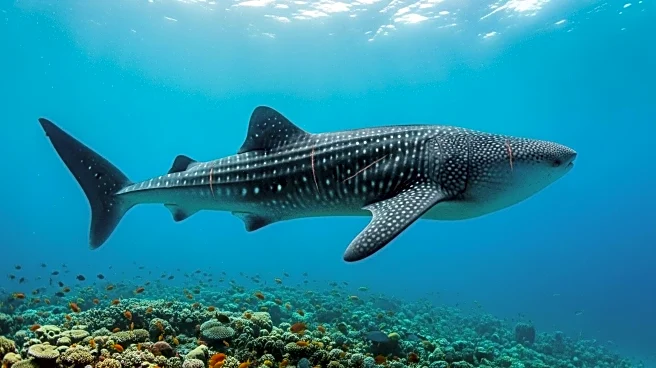What's Happening?
Research has revealed that a significant number of whale sharks in the Bird's Head Seascape, a popular tourist destination in Indonesia, bear scars from human activities. Marine scientists studied over a decade's worth of whale shark sightings and found that more than half of the sharks had injuries caused by interactions with fishing gear and tourism activities. Despite being in protected zones, these gentle giants face risks from boat collisions and fishing platforms. The study highlights the need for improved conservation measures to protect whale sharks from preventable harm.
Why It's Important?
The findings emphasize the impact of human activities on marine life, particularly endangered species like the whale shark. As tourism and fishing are vital to the local economy, balancing economic interests with conservation efforts is crucial. The study calls for stricter regulations to minimize harm, such as modifying fishing platforms and enforcing responsible tourism practices. Protecting whale sharks is essential not only for biodiversity but also for maintaining the ecological balance in marine environments.
What's Next?
Researchers suggest implementing measures to reduce whale shark injuries, including limiting boat traffic and promoting safe diving practices. Conservationists may advocate for policy changes to enhance marine protection areas. Further studies could focus on tracking whale shark populations using satellite tags to better understand their migration patterns and habitat use. Increased awareness and education efforts might be directed at tourists and local communities to foster sustainable interactions with marine life.










